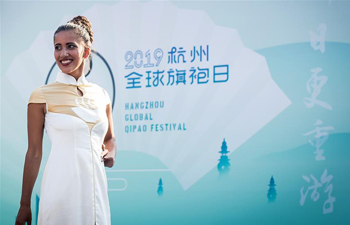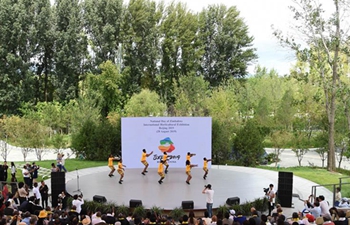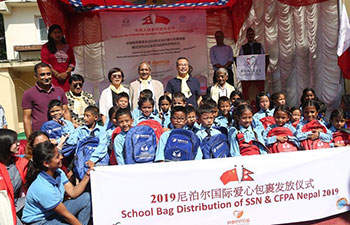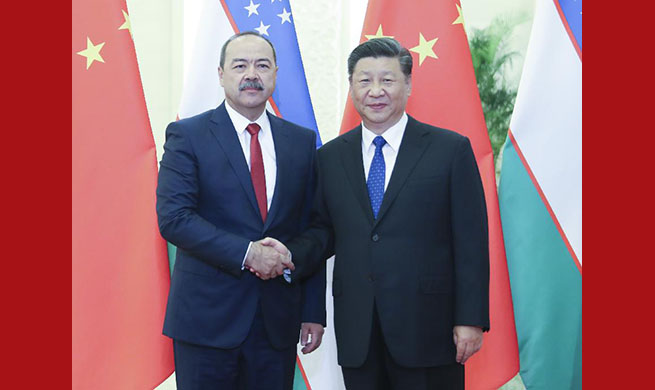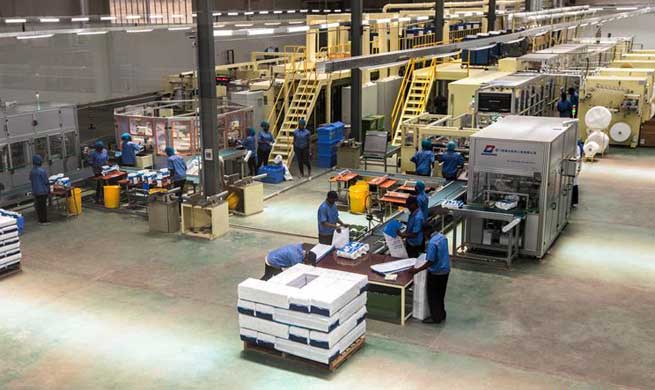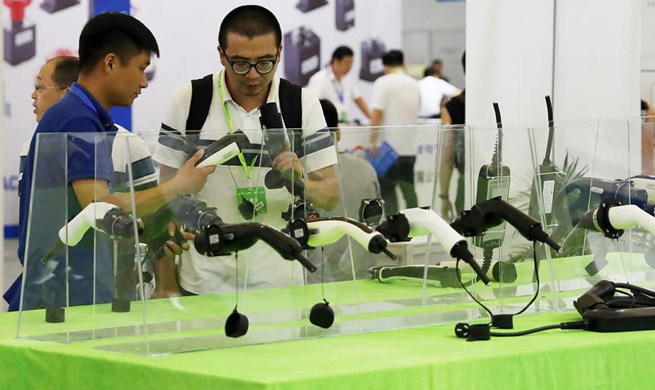ADDIS ABABA, Aug. 28 (Xinhua) -- African experts in digital transformation, gender and education have urged African countries and pan African institutions to embrace inclusive digital policies to benefit millions of out-of-school girls across the continent.
They made the urgent call during a high-level continental meeting organized by the African Union International Centre for Girls' and Women's Education in Africa (AU/CIEFFA), the 55-member pan African bloc revealed in a statement issued on Wednesday.
The continental meeting, which was held under the theme "Expanding out-of-school Girls' Opportunities through Digital Transformation," underlined that latest technologies in the information and communication sector are powerful tools to address tens of millions of out-of-school girls and young women across the African continent.
According to figures from the AU, concerted efforts in the information and communication technologies sector would help some "53 million out-of-school girls and young women in Africa to address their daily challenges and dreams."
The AU also stressed that digital revolution offers an opportunity to empower girls and young women by developing their creativity and enhancing their entrepreneurial skills through a problem-solving approach, placing the latter at the heart of innovators' community.
"ICTs also transform the learning experiences of marginalized people and give them the opportunity to benefit from learning resources both online and offline," an AU statement issued on Wednesday read.
African experts attending the continental meeting also "agreed that harnessing ICTs in education will go a long way in contributing to achieving Goal 17 of Agenda 2063's aspiration 6 which seeks to eliminate all barriers to quality education, health and social services for women and girls," it was noted.
According to the AU, harnessing the digital revolution implies a holistic transformation of not only the formal and informal education systems but also of the whole African society.
"As a matter of fact, there is a need for the education system to take into account the specificity of girls' and young women's needs through gender-responsive policies promoting gender mainstreaming in education and ICT policies, to break stereotypes hindering girls' participation in science, technology and math," the statement read.
Nothing the need to put in place a gender-responsive teacher education approach across Africa, the high-level continental gathering also stressed that "teachers are one of the building blocks in mainstreaming ICT in education."
The experts also urged African countries to adopt policy frameworks that drive the digital revolution of education systems with a full understanding of gender specificities within the education ecosystem.
African teachers have been also urged to empower themselves with the necessary skills, both in ICT and gender so as to play their role as agents of change in education.
Initiatives focusing on teachers empowerment are also said to be in line with strategic objectives stated under the Continental Education Strategy for Africa, which recommend strengthening capacities of education managers and administrators on the use of ICTs.
A strategic collaboration between the private sector, the civil society, and the government has been also proposed by the high-level meeting so as to scale up the different initiatives that are currently implemented to attract more out-of-school girls in ICTs and science education.
The experts further "underscored the need for partners to come together for impact in the process of reintegrating out-of-school girls."
The International Centre for Girls and Women's Education in Africa is a specialized institution of the AU, which envisages "to promote girls and women's education towards their full participation in the eradication of poverty and the edification of a peaceful world for sustainable human development."

